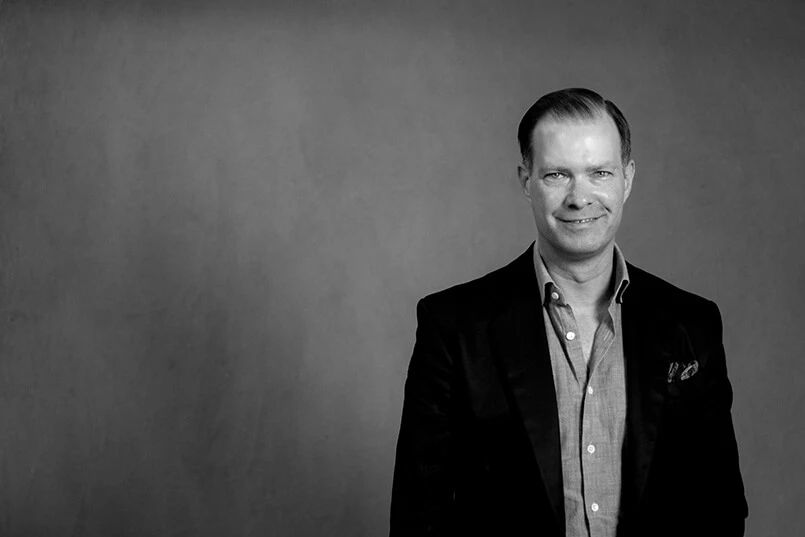It is interesting how traditionally the conceptualisation or ideas phase and the production or implementation phase has been seen as a continuum. That is the agency that is briefed on the project also produces the project.
This stems back many years when creative and production was offered as part of the process of the agency selling media. What was the point of the client buying media and then developing the creative in-house (which was the standard at the time) when the agency could provide this service as part of the media commission and of course a little service fee on top.
It is interesting because technology and a demand for greater accountability on cost effectiveness are continuing to change this view. More than a decade ago, major advertisers in the UK began to decouple production from the agencies. Television, print and later digital production is being outsourced to production specialists, who are more efficient than the agencies at delivering the outputs required.
There are largely two main directions this takes:
- Going directly to the suppliers the agencies have traditionally used and forming direct relationships with these suppliers eg. Production Companies, Post Production Companies, Print Studios, Digital Workshops
- Going to one of the growing number of transcreation companies that have grown, primarily out of the UK and Europe but are increasingly multinational and global
Why decouple production from your agency?
- Many agencies structure their remuneration to rely heavily on the production process to subsidise the conceptualisation process (as apparently no-one wants to pay for ideas?) and therefore costs can be high
- If you are a high volume and especially a fast turn-around advertiser (think retail, telco and financial services) there are economies of scale that are difficult to achieve with the agency alone
- The specialist transcreation companies have invested heavily in workflow and approvals systems to speed up the process and lower the overheads and so provide a low-overhead, lower cost alternative
- You are using multiple agencies for ideas and conceptualisation so you can deliver economies of scale at the production-end consolidating with a single supplier
So which way do you go?
The answer to this depends on your production requirements. The questions you have to consider are:
- Where is the majority of your production spend? Is it in a particular media production such as television or digital or print or across all areas?
- What is the size of your spend? Is there enough to deliver the economies of scale to make the decoupling process worthwhile.
- How cost effective is your current production? Are your incumbent suppliers delivering the efficiencies for your spend?
- What is the nature of the spend? Is it creating new productions or is it largely working to templates or creating multiple versions?
- How centralised or decentralised is your production requirement? Are you a single market advertiser or do you develop executions from the core brand idea across multiple and diverse markets?
Case Study 1 – Decoupling television post production
A telco client approached TrinityP3 concerned over their increasing cost of television production. We reviewed the past three campaigns and identified the heavy use of CGI effects in the agency developed campaign as the main driver with each production more complex than the last. Reviewing the proposed production spend and schedule for the coming year we were able to develop a business case for decoupling the CGI and post production from the agency and assisted the client in the process to deliver a 27% saving on their post production costs.
Case Study 2 – Transcreation services across multiple regional markets
An Australian advertiser had traditionally used an agency network to develop the primary brand strategy in Australia and then customise the creative concepts to suit each of the regional markets across Asia Pacific. Invited to assist with their agency review, TrinityP3 identified a significant component of the incumbent’s spend, especially in these regional markets was production. In fact the low agency fees in these markets were being more than subsidised by a higher than expected production cost. We developed a business model from our knowledge of the main transcreation companies and identified an initial 32% saving on production costs.
Case Study 3 – Off-shoring digital production services
A financial services company had several years earlier engaged a digital agency with off-shore capabilities to provide their digital build requirements. TrinityP3 was asked to review the process and costs of this arrangement and identified that the off-shoring facility was under utilised. As the digital production spend had grown the agency had continued to perform more of this work locally than off-shore. TrinityP3 was able to provide the client with a number of options including a financial model for decoupling digital production to an off-shore facility that would reduce their annual costs by more than 50% in the first year with no loss of quality or increased risk.
Of course decoupling production from your creative agency is not for every advertiser. The process is time consuming and can pose significant risk if poorly executed. But for those advertisers with the right requirements, spend and mix to make it worthwhile it can deliver significant savings.
The agencies largely are against it, primarily as it reduces their revenue. But what are some of the risks or issues that you have heard about the decoupling process?
Leave a comment here so we can discuss them.





7 thoughts on “Why it is time to remove creative agencies from the production process”
@Darren: 'You are using multiple agencies for ideas and conceptualisation so you can deliver economies of scale at the production-end consolidating with a single supplier.' – I totally agree that some clients who disperse their production work across many different businesses can get an economy of scale – the caution is that they need to be sure they are buying what the entire business needs in the process and it needs to be with some good thinking about future purposes too. There are new services all the time becoming available that need to be considered with a deeper insight into the overall marketing strategy too – particularly around digital, mobile and DIY production work.
I also think that their talent and asset management can benefit from consolidation too.
I do think there is a great opportunity for collective businesses to cash in on the overall buying power of a specialist production service too however – that's not necessarily meaning they go use a typical advertising agency, although some agencies do offer some shared buying power that goes back to the client. I don't want to be negative or likewise blatantly self-promote but what we do is unique in Australia so can't quite explain it any other way. So, I do think there are other options where the client wins which is the main thing here.
Yes, overall I certainly love the idea of a separated production service (says me going 'Yay! someone gets what I'm all about!!) Creative can be a by product of the production process rather than the production be a by product of the creative process. There's a massive shift in thinking here but it means the client can consolidate without losing the creative quality.
The other down side of going directly to individual production suppliers without someone working on the client side though is that they don't always buy and manage the whole job as effectively as they could; even though they may be thinking they are dropping a commission. The way that the most experienced people I know work is that they buy cheaper by close to 25% for production services and that's not just about cutting out hands, and that still includes time and fees in the process throughout the job too – so that's a double win in my view.
I love when you raise this type of discussion Darren! It is my ultimate passion and why I have moved back to Melbourne to get back into my real love in a hands-on capacity. You do raise some great points that many less experienced producers are not aware of.
Oh – one quick caution with decoupling the VFX and film company quotes: be sure you know who is responsible for the cost overruns if something goes wrong! Without any margin to play and saying 'well, we're not paying the bill' can cause some conflicts along the way. It is one thing to make a saving up front on the budget negotiations and another to keep the job in line during the production to keep it that way!
Hi Anne, cynically you could say the marketer is responsible for the overruns as they currently end up paying for them one way or the other. Right?
Having just returned from Europe where we completed the separation of concept/idea development and production, it's definitely the way to go in a business with scale, especially where there are multiple markets and multiple executions of the idea. The challenged faced is the internal resourcing that is required to ensure that the creative idea isn't lost in execution. Yes it can make sense that this sits with the marketers (especially given the substantial cost savings realised) however is a brand person the best custodian of the creative strategy? How much do they compromise it in assuming a 'path of least resistance' internally in their organisation? Not saying all marketers would do so, however when leading/understanding creative strategy per se is generally a competency that is in need of development it is a watch out.
Hi Emma, thans for your comment. It is a good question and one answered by the great variation in the type of work that is being decoupled and the needs of the brand strategy. You see often we are seeing the more collateral or commodity creative work being decoupled or outsourced where it is largely following a brand template with little or no creative interpretation. But in circumstance where there is a requirement for significant creative involvement we are ensuring that the creative agency is involved, it is just with a preferred supplier or suppliers. In this way the agency is still engaged in the process.
If you decouple completely from the agency at that important part of the process, who’s going to oversee the work to ensure it’s at a good standard?
And what’s going to happen to the quality of the work?
Darren, you can save money by doing everything yourself. But when it comes to quality, making things look real and retaining some degree of integrity, you still need a solid art director overseeing the process and a producer to make sure the production company isn’t being sneaky.
I like to see clients as people who have something awesome to say, but in all honesty, are completely inept socially. It’s the agencies job to introduce them to people at the party and help them get to know eachother, because most end up sounding like Tony Abbott on a bad day.
Its unfortunate agencies are always judged by costs that they are not responsible for. When it comes to Production and Media this has been the case until the media agencies began operating independently from the creative agencies. There is no ambiguity and doubt on media costs anymore. Once the agency selects a particular production house on their capabilities, its prudent for clients and production companies to resolve costs among themselves. The agencies can then be paid for the idea and their time spent supervising it so that they can begin to have their own credibility and identity as a business entity. However all this haggling of costs seem to happen with multinational brands led by procurement officers who least know how agencies must be remunerated.
Multinational brands are facing major challenges in many local markets they operate, namely India, China, Indonesia, Japan etc where local brands fairly remunerate agencies through commission on media and production charges. They get energetic creative input from much happier agency staff. On the other hand multinational brands are being far more process oriented with their agencies on costs and FTEs and speak less about the quality of Ideas whereas local brands invest more time on ideation and also ensuring far better production quality. The eventual losers are multinational companies and their brands. The shift towards local brands in many markets are evident whilst multinational brands are asking agencies to work with global assets which are mostly irrelevant in a local context.
Comments are closed.